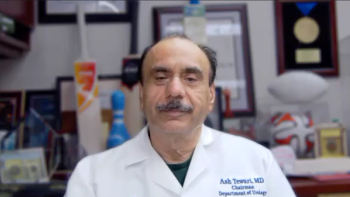
Study Reveals Unique Genetic Features in Testicular Tumors
Investigators at the Dana-Farber Cancer Institute in Boston for the first time have identified unique genomic changes that may be integral to testicular cancer.
Investigators at the Dana-Farber Cancer Institute in Boston for the first time have identified unique genomic changes that may be integral to testicular cancer, and these findings may provide insights into chemosensitivity and resistance to chemotherapy in other cancers.
The investigators
The samples were studied with whole-exome DNA sequencing and RNA transcriptome analysis, and the findings were correlated with clinical outcomes. “We didn’t find any one gene that really explains” the formation of testicular cancers,
One feature of the tumors that had been previously reported was a gain of extra DNA copies on one arm of chromosome 12, in a segment labeled 12p. Chromosomes carry two alleles, one from each parent. In the new study, however, the scientists found there were many chromosome changes with multiple parts of the genome having gain of one parental allele while simultaneously losing a copy of the other parental allele.
The gain and loss of DNA copies suggest that the tumors’ chromosomes are profoundly deranged, which had not been demonstrated before. This abnormality may be linked to the development of germ cell tumors and cause them to be sensitive to chemotherapy, according to the researchers. The analysis revealed another feature of the chemosensitive germ cell tumors in that they possessed intact copies of the p53 gene. The researchers report that in contrast to most types of cancer, testicular tumor cells are already poised on the brink of self-destruction by apoptosis.
In a subanalysis, the scientists studied 13 germ cell tumor samples taken from five patients over time, spanning from before they underwent treatment to after the tumors became drug-resistant. As the cancers progressed, they showed increases in chromosomal abnormalities and the cells of the germ cell tumors became more differentiated, a trait that’s usually associated with less aggressive cancers.
More than 80% of patients with germ cell tumors are cured. However, a significant number become chemotherapy-resistant, and about 10% of patients with metastatic germ cell tumors die as a result. Now, there may be a new avenue to pursue to improve outcomes.
Newsletter
Stay up to date on recent advances in the multidisciplinary approach to cancer.




































